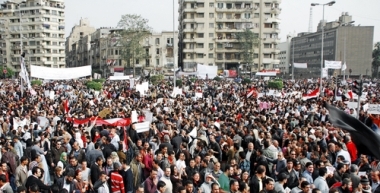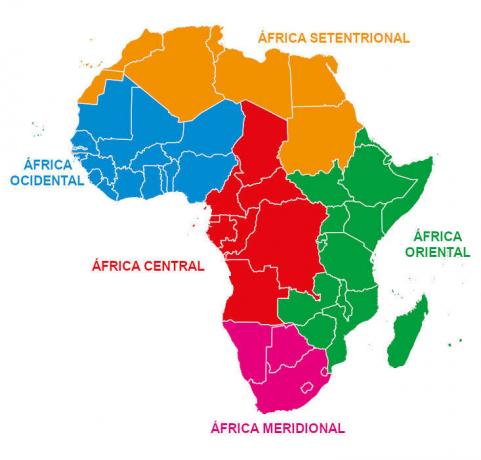On January 20, 2017, Donald John Trump he took office as the 45th US president, succeeding barack obama. He was elected on November 8, 2016 to serve a four-year term at the head of the White House.
candidate for the party Republican, Trump had the senator as his biggest opponent during the 2016 elections Hilary Clinton, ex-president's wife Bill Clinton and Democratic Party candidate. It had strong rejection from a significant portion of the American population.
Involved in controversy before and after the announcement of his intention to run for president, Donald Trump became known for adopting clear positions in his speech and little fear in relation to the negative repercussions of his positions controversial. With a nationalist, anti-immigration stance and in favor of military interventions, Trump had many of his ideas involved in discussion inside and outside the United States. However, his stance found identification in a portion of the population, which elected him to one of – if not “the” – most important political positions on the planet.
Biography
With a degree in economics, Trump inherited his father's business skills. A large real estate magnate, he started his business career on loan from his father, who was already a successful businessman.
He has built a veritable commercial and financial empire and has published books on successful business and careers, as well as a television show host.

Donald Trump is known for ultra-conservative positions. It pleases a portion of the population,
but he is rejected by a significant number of people. **
The real estate billionaire has experience and success in business, and the presidency of greatest economic and military power in the world it was the first political office of his career. His party trajectory has already known different addresses, as Donald Trump joined different parties since the late 1980s. See below the party and the period in which Trump was affiliated:
Democrat → in 1987
Republican → from 1987 to 1999
reform party → from 1999 to 2001
Democrat → from 2001 to 2009
Republican → from 2009 to the present
geopolitics

Donald Trump's speech during the election campaign signaled
for protectionist actions and closing the US economy.
You Donald Trump speeches in relation to their proposals and possible actions regarding US geopolitics and the relations of the superpower with other countries of the globe caused during the presidential campaign discussion and restlessness. phrases like "War and aggression are my first instincts" raised uncertainties about the course of the United States in face of the international scenario.
Below are the main positions expressed by Trump in interviews and speeches before his inauguration in January 2017 with regard to international politics:
"The United States First" – speeches marked by nationalist ideas were a constant during Donald Trump's presidential campaign. Economic protectionism and the generation and maintenance of jobs for the Americans were some of his campaign banners. The then-candidate stated that he would prioritize the country's interests even if he had to jeopardize the relationship with allied countries.
Do not stop now... There's more after the advertising ;)
He has stated on a few occasions that he would have a negotiating power with the Russia superior to that of his predecessor, Barack Obama. Despite the austere tone towards the country, he proposes a rapprochement with his former rival and with Vladimir Putin, the current president of Russia.
Although the United States has in the China its biggest commercial partner, Trump views this relationship negatively, as, according to his assertions, strong competition economic power that the Chinese power offers reduces the possibilities of expansion of the US economy and removes jobs within from the USA.
Declare total opposition to nuclear deal established with the Will. The agreement calls for the gradual withdrawal of economic sanctions as Iran's nuclear arsenal is reduced. For Trump, this agreement benefits the country at the expense of other nations in the Middle East, in addition to strengthening an economy he believes he doesn't deserve.
He argues that the intervention in the Iraq and on Syria and he justifies his objection by alleging that the dismantling of the existing structure there opened space for the expansion of power of terrorist groups, such as the Islamic state, a group that Trump claimed to be "with the days numbered”.
Clearly opposed to Commercial agreements and the process of globalization From the economic point of view, Trump suggests that the United States is disadvantaged with commercial partnerships and that other nations would have more advantages in negotiating with the American superpower.
Shows a trend of isolation in relation to other nations and even suggests that other countries invest more in their own security to stop depending on the United States in these matters.
First days
In your first week at the head of the White House, Donald Trump has signaled that he intends to carry out several of his campaign proposals.
Among the decisions with the greatest international impact is the decree that revokes the United States' participation in the Trans-Pacific Association Agreement (TPP) – an action that confirms the tendency of economic protectionism proposed in the electoral campaign and automatically indicates commercial distance from its Asian neighbors.
Another very symbolic measure was the elimination of the Spanish version of the White House website, demonstrating the nationalist and anti-immigration tendency, also explicit during the presidential campaign. Trump guarantees to build – expand – the wall on the border with mexico to bar the entry of illegal immigrants.
Image credits:
* Evan El-Amin / Shutterstock
** JStone / Shutterstock
By Amarolina Ribeiro
Graduated in Geography
Would you like to reference this text in a school or academic work? Look:
RIBEIRO, Amarolina. "Donald Trump in Power"; Brazil School. Available in: https://brasilescola.uol.com.br/geografia/donald-trump-no-poder.htm. Accessed on July 27, 2021.



